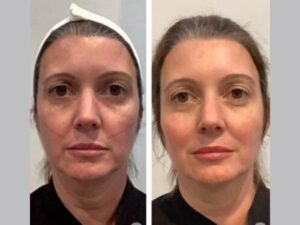
In today’s digital-first world, the healthcare industry is rapidly embracing online marketing to reach and retain patients. From hospitals to private clinics and telehealth startups, every healthcare provider now competes for attention in a crowded online space. That’s where healthcare digital marketing comes in—providing a powerful way to build trust, drive traffic, and grow patient numbers.
This 2025 guide explores the key strategies, tools, and benefits of digital marketing in healthcare, so you can stay ahead of the competition and better serve your audience.
What Is Healthcare Digital Marketing?
Healthcare digital marketing is the process of promoting medical services, healthcare professionals, hospitals, and wellness products through online platforms such as search engines, websites, social media, email, and paid ads.
It helps providers:
-
Reach target patients more efficiently
-
Educate audiences
-
Increase appointment bookings
-
Strengthen reputation and trust
-
Compete locally and globally
Why Digital Marketing Matters in Healthcare
Patients now research symptoms, doctors, and hospitals online before making decisions. According to Google, 77% of patients use search engines prior to booking an appointment.
Digital marketing ensures:
-
Better visibility on search engines and maps
-
Faster patient engagement
-
Data-driven insights for strategy improvements
-
Improved patient experience through online communication
Key Healthcare Digital Marketing Channels
🔍 1. Search Engine Optimization (SEO)
Helps your website rank higher on Google for keywords like “dentist near me” or “pediatric clinic in Dubai.”
-
On-page SEO (website content optimization)
-
Off-page SEO (backlink building)
-
Technical SEO (speed, mobile-friendliness)
💰 2. Pay-Per-Click (PPC) Advertising
Run paid ads through Google Ads or Bing to attract new patients quickly.
-
Google Ads for local services
-
Facebook Ads for awareness
-
Retargeting for follow-ups
📱 3. Social Media Marketing
Platforms like Facebook, Instagram, LinkedIn, and TikTok help build community engagement and share valuable health content.
📨 4. Email Marketing
Send appointment reminders, health tips, and newsletters to keep your patient base informed and loyal.
🖥️ 5. Website Optimization
Your website should be fast, secure, mobile-friendly, and feature online appointment booking, contact info, and patient resources.
Building Trust Through Content
Content is king in healthcare digital marketing. Use it to educate, inform, and connect.
-
Blog posts about common conditions
-
Doctor profiles and videos
-
FAQs about procedures
-
Case studies and testimonials
-
Health awareness campaigns
Content improves SEO and builds credibility with both patients and search engines.
Reputation Management
Online reviews matter more than ever in healthcare. A strong digital marketing strategy includes:
-
Encouraging Google and Facebook reviews
-
Responding professionally to feedback
-
Using tools like Trustpilot, Healthgrades, or Zocdoc
Compliance and Ethics
Always follow regulations like:
-
HIPAA (US)
-
GDPR (EU)
-
HAAD/DHA Guidelines (UAE)
Avoid sharing sensitive patient information in your content or marketing materials without consent.
Tools and Platforms
Healthcare marketers often use:
-
Google Analytics (track visitors)
-
SEMRush/Ahrefs (SEO tools)
-
Mailchimp (email campaigns)
-
Hootsuite/Buffer (social media scheduling)
-
CRM systems for patient follow-up
Measuring ROI
Track key metrics such as:
-
Website traffic
-
Conversion rates (appointments, calls)
-
Cost per acquisition (CPA)
-
Social media engagement
-
Email open and click rates
Digital marketing is measurable, allowing constant improvement based on real data.
Final Thoughts
Healthcare digital marketing in 2025 is no longer optional—it’s essential. Whether you’re a solo practitioner or a large hospital, implementing the right online strategies will help you connect with patients, build trust, and grow your services sustainably.







